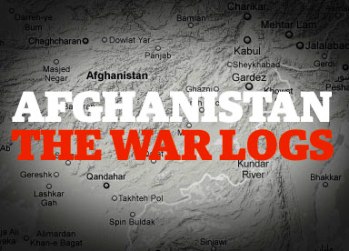Last Sunday (July 25), The New York Times released their findings on some 92,000 secret documents detailing a variety of information from the last six years of the war in Afghanistan

The secret reports were posted online by WikiLeaks.org whose goal, writes The Times, “is to reveal ‘unethical behavior’ by governments and corporations.” WikiLeaks founder Julian Assange told The Times that the documents show “not only the severe incidents but the general squalor of war, from the death of individual children to major operations that kill hundreds.”
This piece is not about those documents per se; rather it’s about the ethics of releasing such documents.
On its Website, WikiLeaks writes, “In its landmark ruling on thePentagon Papers, the US Supreme Court ruled that ‘only a free and unrestrained press can effectively expose deception in government.’ We agree.”
However, any similarity to the release of, what they call, The Afghan War Diary to the Pentagon Papers is erroneous. ThePentagon Papers (entitled, United States-Vietnam Relations, 1945-1967: A Study Prepared by the Department of Defense)demonstrated, as The Times wrote at that time, “that the Johnson Administration had systematically lied, not only to the public but also to Congress, about a subject of transcendent, national interest and significance.”
The documents from WikiLeaks are “based on thousands of [raw] United States military incident and intelligence reports – records of engagements, mishaps, intelligence on enemy activity and other events from the war in Afghanistan…”
On its Website, WikiLeaks says, “We believe that transparency in government activities leads to reduced corruption, better government and stronger democracies. All government can benefit from increased scrutiny by the world community, as well as their own people. We believe this scrutiny requires information.”
What’s ironic about that statement is that while WikiLeaksbelieves that transparency serves the best interests of the public,WikiLeaks and Assange are not at all transparent about themselves. Who funds WikiLeaks? Who supplied the documents and what is their agenda in releasing classified material?
I am not necessarily against the release of internal documents that reveal unethical activities. I just believe that solid standards should be in place to determine what gets released and how where, in this case, hundreds, perhaps thousands of lives could be on the line.
In an interview on NPR’s Fresh Air (July 27), Mark Mazzetti, one of The Times writers on the story, said that The Times does use such standards, but acknowledges that he doesn’t know what standards are used by WikiLeaks or Assange.
Regarding their own verification process, The Times writes, “To establish confidence in the information, The Times checked a number of the reports against incidents that had been publicly reported or witnessed by our own journalists. Government officials did not dispute that the information was authentic.”
However, the critical questions that I’d put to The Times staff would be these: Would the release of this information possibly put individuals and operations at risk; and what actions are you prepared to take if the release of the documents resulted in harm to any troops? While WikiLeaks is releasing the documents with or without the New York paper, The Times now has a share in any negative consequences.
In “reader comments” on this story, former U.S. Army Captain James Morin raises another important issue – candor. “Leaks like those at the heart of the Pentagon Papers, play a role in a democracy when national civilian and military leaders mislead the country… What we see in [the Afghan] documents, however, largely demonstrates the absence of such a need. Instead, we are left with the harmful aspects of classified leaks – a chilling lack of confidence and internal candor.
“Going forward, a battalion-level intelligence officer may hesitate to pass on what her instinct tells her to be marginally credible information (after all, even the best source is not always right). She may start to wonder, ‘Do I really want to see this pop up on WikiLeaks or run in a 10-second spot on the evening news?’ when she is debating whether the rumor is worth sending up to the next echelon. Ultimately, such concerns will damage the ability of our institutions to fully understand the diplomatic and security landscape before them.”
While I strongly support journalism’s role as Watchdog on possible corruption, hypocrisy and lies which threaten public interests, I am deeply concerned about the ethics of an organization that offers up secret documents to journalists, insists on what seems to be an arbitrary deadline of one month’s verification before they themselves release the documents without any priority given to who might be harmed. While the goal of WikiLeaks appears to be transparency, the organization itself remains shrouded in secrecy. How does that support the public’s trust?
While The Times carried a sidebar (Piecing Together the Reports, And Deciding What to Publish), that attempts to explain their verification process, that explanation lacks a specific decision-making process under which those decisions were made.
From an ethical perspective, any organization that claims to be a Watchdog for the public would do well to demonstrate a concern for the well-being of others; respect the dignity, privacy and autonomy of others; and be prepared to accept the moral responsibility for the foreseeable consequences of their actions.
Comments










